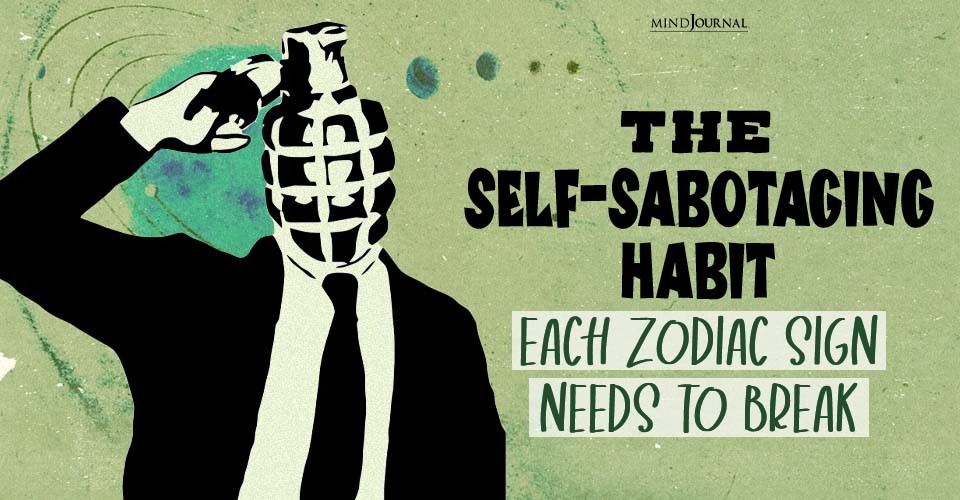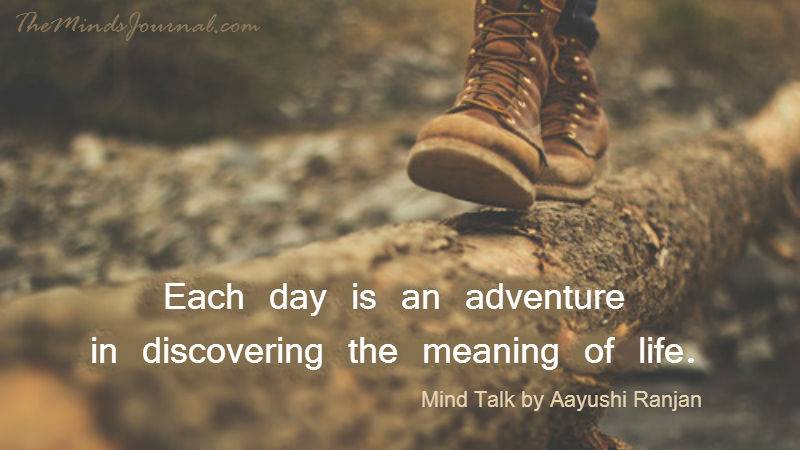If you are currently employed, you know that stress in the workplace is a part of professional life. When unmanaged, common stress can lead to larger issues like burnout, decreased productivity, and a whole host of mental health challenges, including costs to society.
According to Mindshare Partners’ 2021 study on the State of Mental Health at Work Report, over 76% of U.S. workers reported work-related stress. 1 Their more recent study in 2023 shows that although the percentage of U.S. workers reporting work-related stress has shrunk (possibly in response to relatively more stability in a post COVID world), workers’ views of their mental health has in fact decreased. In 2023, a whopping 61% of U.S. workers reported experiencing at least one symptom of mental health, including burnout, anxiety or depression. 2 In light of the prevalence of work-related stress, taking the time to address mental health in the workplace is a critical issue that must be addressed by employees, employers and society at large.
At Los Gatos Doc, we know that mental well-being stretches far beyond the hours we spend “off the clock” and a healthy mental state in the workplace goes further than just managing stress—it’s about creating a balanced and sustainable approach to self-care that empowers you to thrive round-the-clock both personally and professionally.
What Are the Primary Contributors to Workplace Related Stress?
Workplace stress has become an increasingly pressing issue in recent times, impacting
employees’ mental health, physical well-being, and productivity. It’s not simply about juggling deadlines or handling tough projects, stress in the workplace can impact all aspects of your life, from strained personal relationships to chronic health conditions.
Primary Contributors to Workplace-Related Stress
To effectively address stress in the workplace, it’s important to understand the root causes. When workplaces prioritize mental health, they foster an environment where employees feel valued and supported, reducing both stigma and stress.
The following factors often play a significant role:
1. Company Culture:
How you interact within the company and workplace sets the tone for how employees perceive and address mental health challenges. Key questions to include:
- Is the organization committed to supporting mental health?
- Are employees encouraged to discuss mental health issues openly without fear or shame?
- Are resources like Employee Assistance Programs (EAPs) readily available?
1. The Nature of Work Itself:
When employees are engaged, safe, and connected, their stress levels are significantly reduced. This is because the dynamics and structure of a job significantly impact mental well-being. For instance, is the workload suitable for an employee’s capabilities and a healthy work- life balance? Or does work involve long hours, shift work and infrequent breaks? Are there conflicting or uncertain job expectations or are expectations reasonable and clear?
2. Personal Finances and Remuneration:
Fair compensation is a paramount aspect of workplace satisfaction. Employees may feel stress if they view the idea that their pay does not align with their workplace contributions or the rising cost of living in their area. Having unfair or inadequate remuneration can increase financial worries, leading to mental health issues like anxiety or depression. Having equitable pay and reducing workplace stressors can help to combat this issue.
The Impact of Workplace Stressors on Mental Health
According to the American Psychological Association (APA), workplace stress is a major
contributor to mental health issues, 4 costing billions each year in lost productivity and healthcare costs. This is not shocking, as those who are under duress or extra stress have often have a hard time achieving the tasks laid before them.
Prolonged stress in the workplace can increase already existing mental health issues, or
develop new issues such as:
- Anxiety and Depression: Persistent stress can disrupt mood regulation, increasing the risk of mental health disorders.
- Sleep Problems: Stress often leads to insomnia or poor-quality sleep, which exacerbates fatigue and emotional distress.
- Burnout: A state of physical, emotional, and mental exhaustion caused by prolonged workplace pressures.
Treating these issues as they arise is paramount in your success not only for your job, but for your long term health.
Strategies for Managing Stress in the Workplace
Finding ways that work for you to manage your daily stressors inside of the workplace will not only make you healthier and happier, it will make you a more productive and proactive employee as well. We have compiled a list of some of the top ways to manage stress inside of the workplace adapted from Harvard’s recommendations on Stress in the Workplace.
1. Watch the Clock:
Oftentimes we know how to best manage our time, but at the last minute how often are
we feeling rushed or stressed to complete a task? It’s important to plan realistically. I know we all enjoy checking things off our to-do list, but being more down-to-earth about just how long that briefing is going to take you will save you a headache (literally) in the long run.
2. Prepare and Plan for Breaks:
How many times have you told yourself, “5 more minutes” only to let another hour sneak by. It is important to build in time to actually relax. If you are a person who has a
challenging time doing so, schedule them! You can set a timer for 30 minutes, and take 5 minutes to get up and stretch, eat a meal, do some mindful breathing, or take a walk.
Breaking away from our computers (and responsibilities) can help in the long term for overall morale—your task will still be there when you’re ready.
3. Keep Healthy Habits:
Have you had enough water today? Did you know that if you are skimping on the 8
recommended glasses, you may be suffering from fatigue much faster than when properly hydrated? Also keeping a healthy array of eating habits (including your favorite
midday snack) will help control blood sugar and keep you motivated much longer.
4. Exercise:
Healthy adults should be aiming for at least 30 minutes of physical activity a day. 7 This
can be done all at once, or in spurts throughout the day. However you slice it, your body
needs to move. Consistent exercise will work to keep your stressors at bay, and give you
those happy hormones in your brain and body to help you feel more relaxed—both
physically and mentally.
5. Treat Yourself…Really!
Motivation is not just for your kids. You work hard, you should be rewarded! Rewarding
yourself can give you extra motivation to complete tasks, and will give you something
special to look forward to. It doesn’t have to be a summer trip to Fiji, a small piece of
chocolate or your favorite movie after work can do the trick. No matter how small, it is going to keep you feeling good and motivated to make it a job well done.
In addition to these tips, making space for mindful moments like deep breathing or guided meditations can help calm your mind and improve your focus as well as getting enough shut-eye each night. Be sure that you are also keeping in contact with your friends, work besties, and loved ones. Making the time to catch up with those you love can do wonders for your mental state.
Sometimes workplace stress and self-care strategies are simply not enough, and professional support becomes a necessity. If you find yourself experiencing the signs below, 8 it may be time to speak to your doctor:
- Persistent feelings of anxiety or depression.
- Difficulty concentrating or making decisions.
- Sleep disturbances that don’t improve with lifestyle changes.
- Loss of interest in work or other activities.
What Organizations Can Do to Support Their Worker’s Well Being?
Workplace stressors cause significant challenges that affect productivity, overall job satisfaction, as well as employee mental health. Employers can play a huge role in fostering both a healthy and supportive work environment by taking the time to implement evidence-based strategies.
Here are some key recommendations and actionable steps:
Promote A Healthy Culture At Work –
- Make Workloads Manageable:
Taking the time to assess workloads to ensure they are realistic and also aligned with employees’ skills and capacities will aid in maintaining morale. Avoid setting unreasonable deadlines that promote burnout. - Eliminate Unhealthy Management Practices:
Take the time to train managers to adopt supportive leadership styles that can prioritize empathy, active listening, and constructive feedback. - Minimize Safety and Health Hazards: Conduct regular safety audits and ensure both physical and psychological hazards are addressed. 9
- Consider Hybrid Work Options:
Offering flexibility in where and how employees work can improve mental health outcomes. 10 Taking the time to recognize how hybrid work empowers employees by creating environments that are safe, will benefit the workplace.
Communicate Your Commitment to Mental Health –
- Secure Leadership Commitment:
Having visible support from top management works to reinforce the importance mental health initiatives. - Encourage Leaders to Share their Stories:
When senior leaders take time to share personal stories, it will reduce stigma and normalize the need for seeking help when necessary. - Develop Anti-Discrimination Policies:
Taking time to both implement and enforce policies that protect against discrimination, harassment, and bullying will ensure a safe and inclusive workplace for all.
Mental health treatment & Self-Care Resources
- Prove Accessible Support Systems:
Employee Assistance Programs (EAPs) are great for offering free or low cost counseling services. 12 Your employees can use this for health screenings, referrals, or mental health counseling services for low-cost options or free of charge.
- Create Resource Hubs:
Centralize information on mental health resources, including online self-help tools, wellness programs, or local therapy providers.
- Invest in DEI initiatives:
Diversity, Equity, and Inclusion (DEI) training works for all to feel warm and welcome, including those in marginalized communities, by fostering belonging and reducing bias. This is a huge win for workplace wellness.
Measure & Grow
Taking the time to regularly evaluate key indicators such as your employee engagement,
turnover rates, or even basic productivity will give you areas of improvement from which you can build. Being sure to take this, alongside feedback from employees (anonymous is always best to generate the most authentic responses) can help you see firsthand how your employees feel day-to-day, evaluate stress levels, and gauge workplace satisfaction. Taking these numbers and adjusting measurable outcomes with employee input will surely set you up for success in the long term.
Support Your Mental Health with Los Gatos Doc
At Los Gatos Doc, we know how important mental health is when looking at your overall well- being. Dr. V and his team offer personalized care, including stress management strategies, basic mental health evaluations, and guidance on building sustainable self-care.
If you’re ready to take control of your mental health for good, we’re here to help. Contact us at (408) 502-6040 to schedule an appointment and start thinking about your well-being today!
References:
- Mind Share Partners. (2021). 2021 Mental Health at Work Report—The Stakes Have Been Raised. Mindsharepartners. https://www.mindsharepartners.org/mentalhealthatworkreport-2021
- 2023 Mental Health at Work Report. (n.d.). https://www.mindsharepartners.org/_files/ugd/94aa4e_f2974ff18c934d5ba072795 d8003195.pdf
- American Heart Association Well-being Works Better. (2024). Wellbeingworksbetter.org. https://www.wellbeingworksbetter.org/en/
- Stress in the Workplace Survey Summary American Psychological Association Harris Interactive. (2011). Phwa survey summary. https://www.apa.org/news/press/releases/phwa-survey-summary.pdf
- How to Survive Stress & Maintain Productivity | HBS Online. (2016, March 31). Business Insights Blog. https://online.hbs.edu/blog/post/7-tips-to-survive-stress-and-maintain-productivity
- Johns Hopkins Medicine. (n.d.). Tension Headaches. Www.hopkinsmedicine.org. https://www.hopkinsmedicine.org/health/conditions-and diseases/headache/tension-headaches
- CDC. (2023, December 20). Physical Activity for Adults: An Overview. Physical Activity Basics. https://www.cdc.gov/physical-activity-basics/guidelines/adults.html
- American Psychological Association. (2014, July 1). Coping with stress at work. Apa.org. https://www.apa.org/topics/healthy-workplaces/work-stress
- Tips for Improving Employee Wellbeing & Mental Health in the Workplace infographic (2025). Stress.org. https://www.stress.org/wp-content/uploads/2024/04/Tips-for-Promoting-Employee-Well-Being-and-Mental- Health-in-the-Workplace.png
- 2023 Mental Health at Work Report. (n.d.). https://www.mindsharepartners.org/_files/ugd/94aa4e_f2974ff18c934d5ba0727956d8003195.pdf
- https://www.cdc.gov/niosh/docs/99- 101/default.html#What%20Can%20Be%20Done%20About%20Job%20Stress?
- U.S. Department of Health and Human Services. (2021, October 28). Employee Assistance Program (EAP). HHS.gov. https://www.hhs.gov/about/agencies/asa/foh/bhs/employee-assistant- program/index.html
- Exploring the Intersection of DEI & Mental Health — Talkspace | Talkspace. (n.d.).Business.talkspace.com. https://business.talkspace.com/articles/dei-and-mental-health



















Leave a Reply